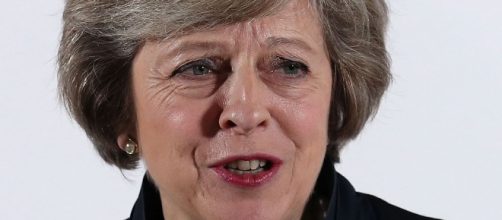In a speech, Prime minster Theresa May suggested that the media's claims that she desires a hard Brexit-something that she denied- is the cause of the continual decline of sterling.In response to a question asking if the market's had misinterpreted her vision of Brexit, Theresa May said:"I'm tempted to suggest that the people who are misinterpreting my vision of Brexit are the people that print articles that say I'm fighting for a hard Brexit. It is inevitable that we have a hard Brexit".
The best Brexit possible
May continued, reiterating that her government are going to head into negotiations with ambition, seeking out the best possible Brexit deal for the United Kingdom.
"In terms of doing business with the European single market, we will be outside the European Union and, ergo, we are compelled to be negotiating a new deal across all areas with the European Union"
Theresa May's comments came during her first speech of 2017. Predominantly, the prime minster's speech was used to reinforce her message of a "shared society" which she first outlined on the steps of Number 10. However, large segments of her speech were directed at her predecessors, primarily David Cameron and Tony Blair. In some what of a bold move, May lambasted the failures of centre mainstream Politics, which she argued had resulted in the "politics of division".
Citing Nigel Farage and Marine Le Pen, May said: "We see former fringe voices gaining a mainstream voice across all of Europe- voices from both the hard left and far right that opportunistically sense their time is now".
Furthermore, May stated in plain term that globalisation was failing a lot of people, which has enabled these voices to come to prominence.
Tackling the key issues
May stated that it was incumbent on her government to demonstrate that centre ground politics can provide answers- of course, whether May's government is on central ground is another issue entirely. To close her speech, May outlined the social injustices that she intends to tackle over the coming year. May listed racial discrimination, poor life choices for working class boys and gender inequality as her primary targets.

